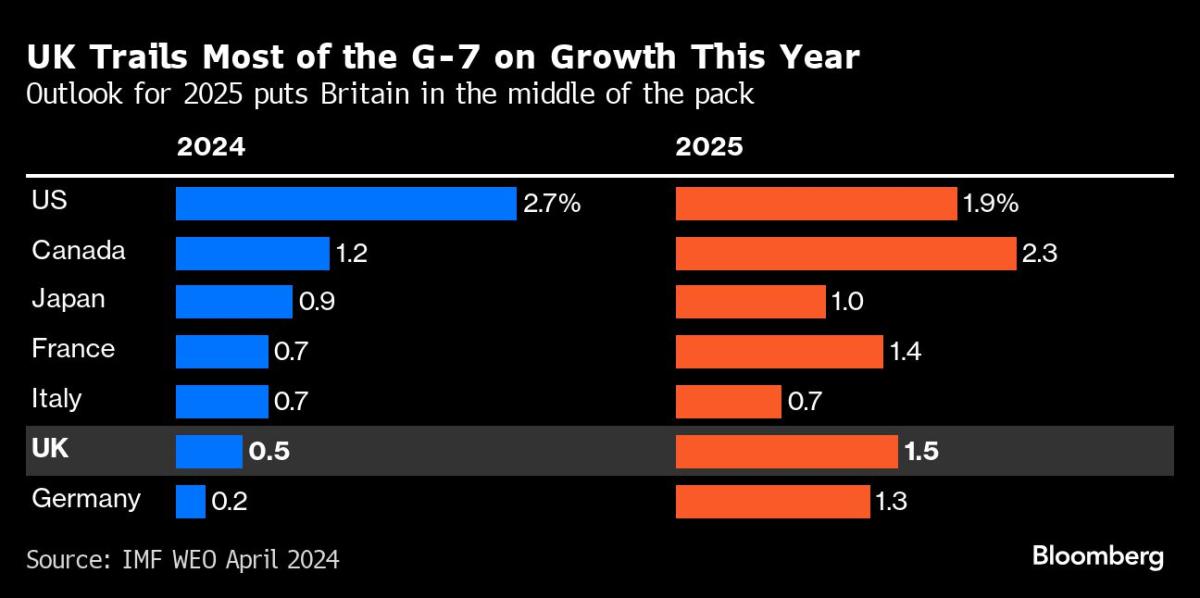(Bloomberg) – British Prime Minister Rishi Sunak will head to elections having overcome the inflation crisis, but annual economic growth this year is weaker than in any other Group of Seven country except Germany, according to the International Monetary Fund.
Most read from Bloomberg
The IMF cut its forecast that Britain’s gross domestic product will post a gain of 0.5% this year from the previously estimated 0.6%. The figures in the updated World Economic Outlook are the second worst in the G-7.
However, according to the IMF, inflation will average 2.5%. That is above the 2% target, but in line with other European countries – and lower than the US.
The fund’s forecasts show that most major economies, including the UK, will experience a soft landing as inflation falls to 2% in 2025 and growth picks up. That points to a better legacy for the next government.
Sunak needs good economic news with the ruling Conservative Party trailing the Labor opposition in the polls by almost 20 points. The Prime Minister has said he wants to hold a general election when people “feel things are improving”, but they must take place no later than January 2025.
In 2025, the UK economy will grow by 1.5% – faster than all G-7 countries except the US and Canada, the IMF said. Unemployment falls to 4.1%, after a peak of 4.2% this year.
The Bank of England could provide some relief. The IMF’s forecasts assume a reduction in interest rates of around two quarter points, which at 5.25% is now the highest level in sixteen years. There are indications that the IMF believes the BOE could move faster. The fund estimated that the gap between actual and potential output is minus 0.3%, a signal that the policy may be too restrictive.
The IMF criticized the British government’s tax cut plans earlier this year, urging it to invest in public services and infrastructure instead. It warned in its latest forecasts that elections around the world this year, including the UK, could tempt governments into further inflation-inducing giveaways.
The fund warned that the risk is not only a rebound in prices, but also the sustainability of government debt. Britain needs to find savings, either through tax increases or spending cuts, of around 3% of GDP, simply to stabilize the debt by 2029. The national debt is almost 100% of GDP.
Reducing debt levels to pre-pandemic levels by 2029 would require fiscal consolidation worth 8% of GDP. The government is currently planning to cut 3% of GDP by freezing tax thresholds and cutting public services. The pressure is so severe that economists have labeled it a “budget fiction.”
A Treasury spokesperson said: “Today’s report shows that we are winning the battle against high inflation, with the IMF predicting it will fall much faster than previously expected. The forecast for medium-term growth is optimistic, but like all our peers, UK growth in the short term has been affected by higher interest rates, with Germany, France and Italy all experiencing larger downgrades than the UK.”
–With help from Zoe Schneeweiss.
Most read from Bloomberg Businessweek
©2024 BloombergLP






